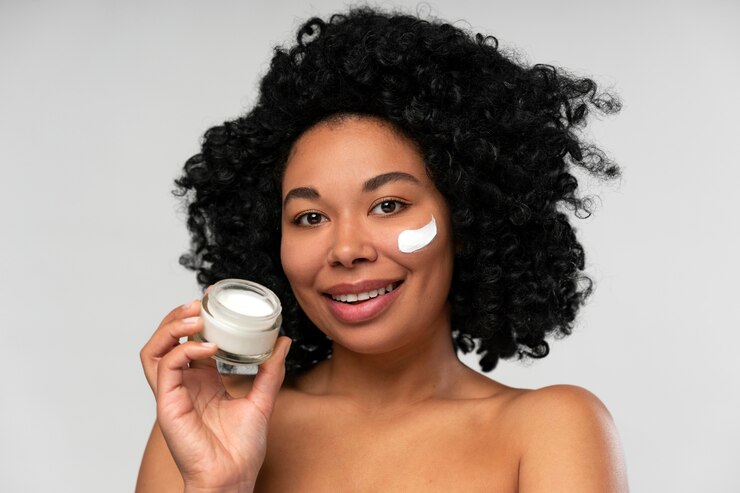In South Africa, the pursuit of a particular skin complexion has been a significant aspect of beauty standards, influenced by historical, societal, and cultural factors. As a result, a multitude of complexion creams have flooded the market, promising to fulfill the desire for lighter or more even-toned skin. This article delves into some of the most used complexion creams in South Africa and examines their effects, both positive and potentially harmful.
- Bio Claire:
Bio Claire is a popular brand in South Africa known for its skin-lightening creams. While users often praise its quick results, the cream contains hydroquinone, a controversial ingredient linked to adverse effects such as skin irritation, ochronosis (a bluish-black discoloration of the skin), and long-term damage. - Caro Light:
Caro Light is another widely used skin-lightening product in South Africa. It typically contains hydroquinone and steroids, posing potential risks such as skin thinning, discoloration, and increased vulnerability to infections. Prolonged use may lead to dependency on steroids. - Movate:
Movate is a popular cream known for its skin-lightening properties. It often contains hydroquinone and mercury, which can lead to adverse health effects such as mercury poisoning, kidney damage, and neurological issues with prolonged use. - Diana Stalder:
Diana Stalder is a brand offering skin-lightening products, including creams containing potent ingredients like hydroquinone and kojic acid. While users may see initial lightening, the long-term effects include potential skin damage and dependency on these strong compounds. - Fair & White:
Fair & White is a brand that markets itself for skin lightening. Some of its products contain hydroquinone and corticosteroids, which can lead to side effects like skin thinning, acne, and discoloration, particularly if used without proper medical supervision. - E45 Cream:
E45 Cream, while not explicitly a skin-lightening product, is often used for its moisturizing properties. However, prolonged use of products containing high levels of paraffin and petrolatum may result in a lack of skin breathability, potentially leading to skin issues. - Ambi Skincare:
Ambi Skincare is known for its fade cream, which contains hydroquinone. While users may experience initial lightening, the product’s long-term use is associated with side effects such as skin irritation, redness, and a potential rebound effect upon discontinuation.
Effects and Concerns:
- Skin Irritation:
Many complexion creams, especially those with hydroquinone and strong acids, can cause skin irritation, redness, and itching, undermining the intended goal of achieving healthier skin. - Dependence on Steroids:
Some creams contain corticosteroids, and prolonged use can lead to dependency. Abrupt discontinuation may result in withdrawal symptoms and exacerbate skin issues. - Mercury Poisoning:
Products containing mercury pose severe health risks, including mercury poisoning. The consequences can range from kidney damage to neurological impairment, highlighting the importance of avoiding such ingredients. - Ochronosis:
Hydroquinone, a common ingredient in skin-lightening creams, has been linked to ochronosis—a condition characterized by bluish-black discoloration of the skin. This adverse effect can be disheartening for users seeking a more even skin tone. - Legal Implications:
The use of certain ingredients, such as hydroquinone and mercury, may be restricted or banned in some regions due to health concerns. Individuals using such products may unknowingly expose themselves to legal consequences.
While the pursuit of a desired skin complexion is a personal choice, it is imperative to approach it with awareness of the potential risks associated with certain complexion creams. The desire for lighter skin should not compromise overall skin health or contribute to long-term issues. Embracing one’s natural beauty and seeking safer alternatives are essential steps towards a healthier approach to skincare in South Africa and beyond.








